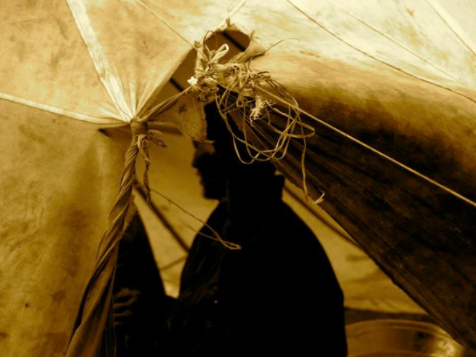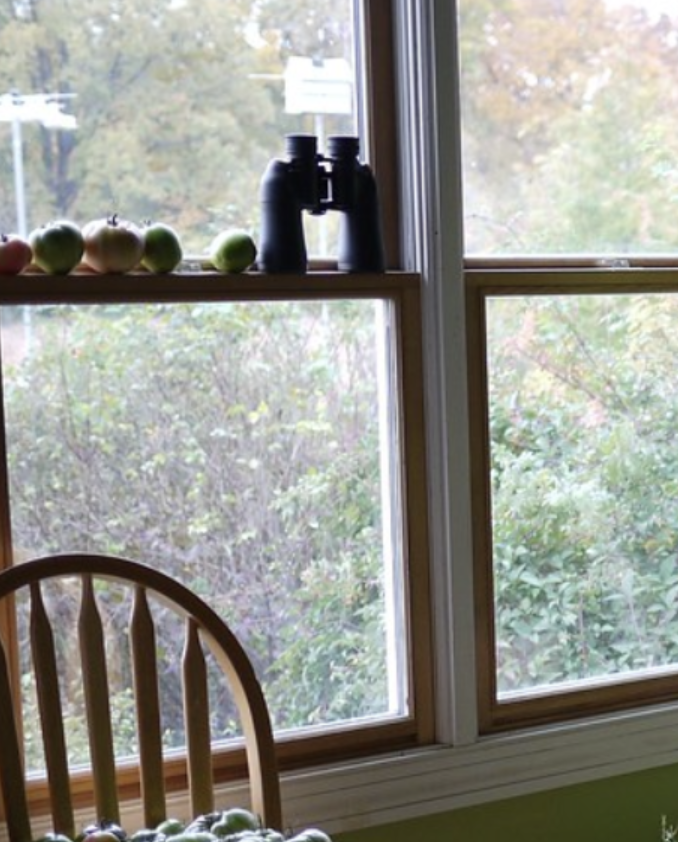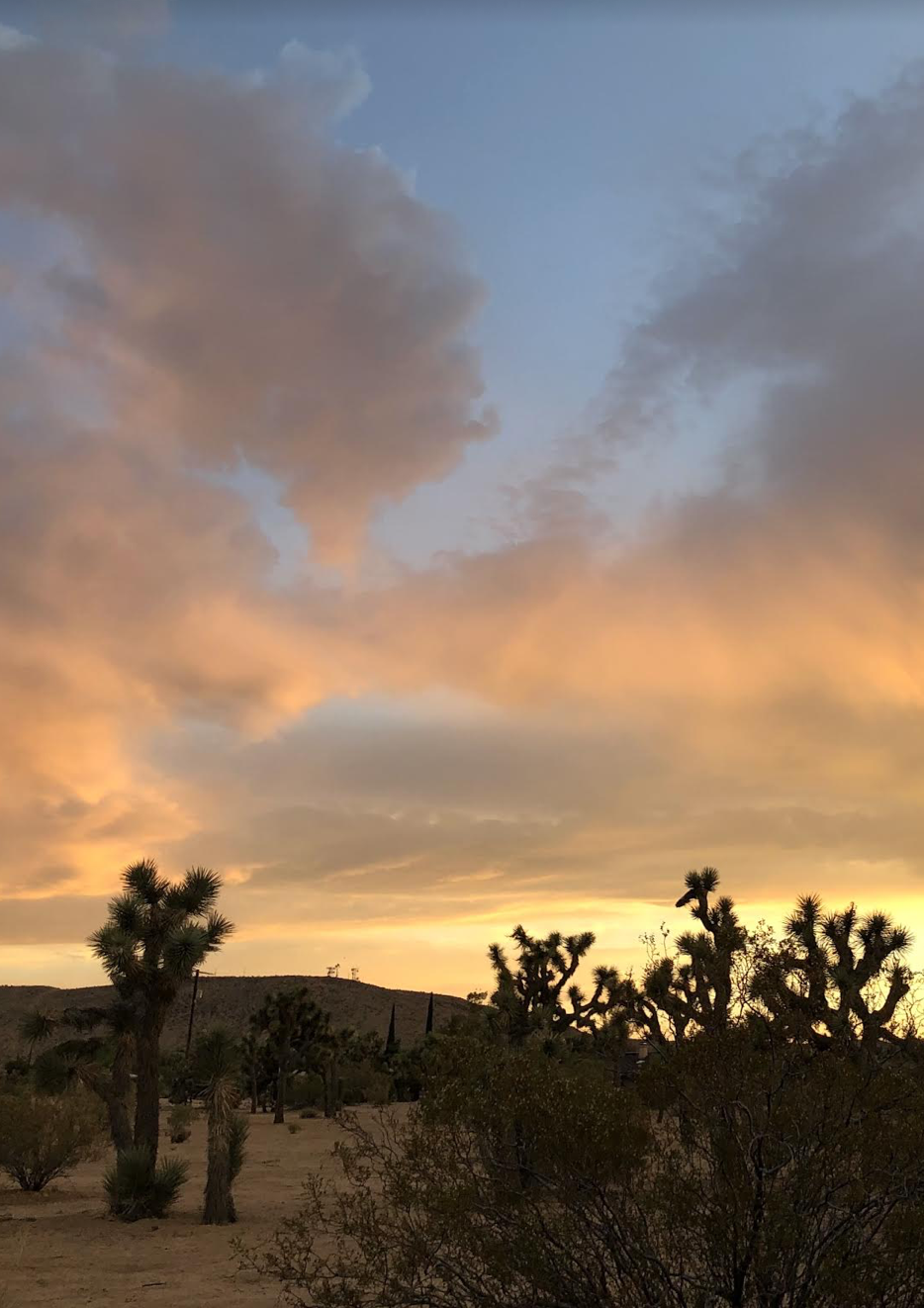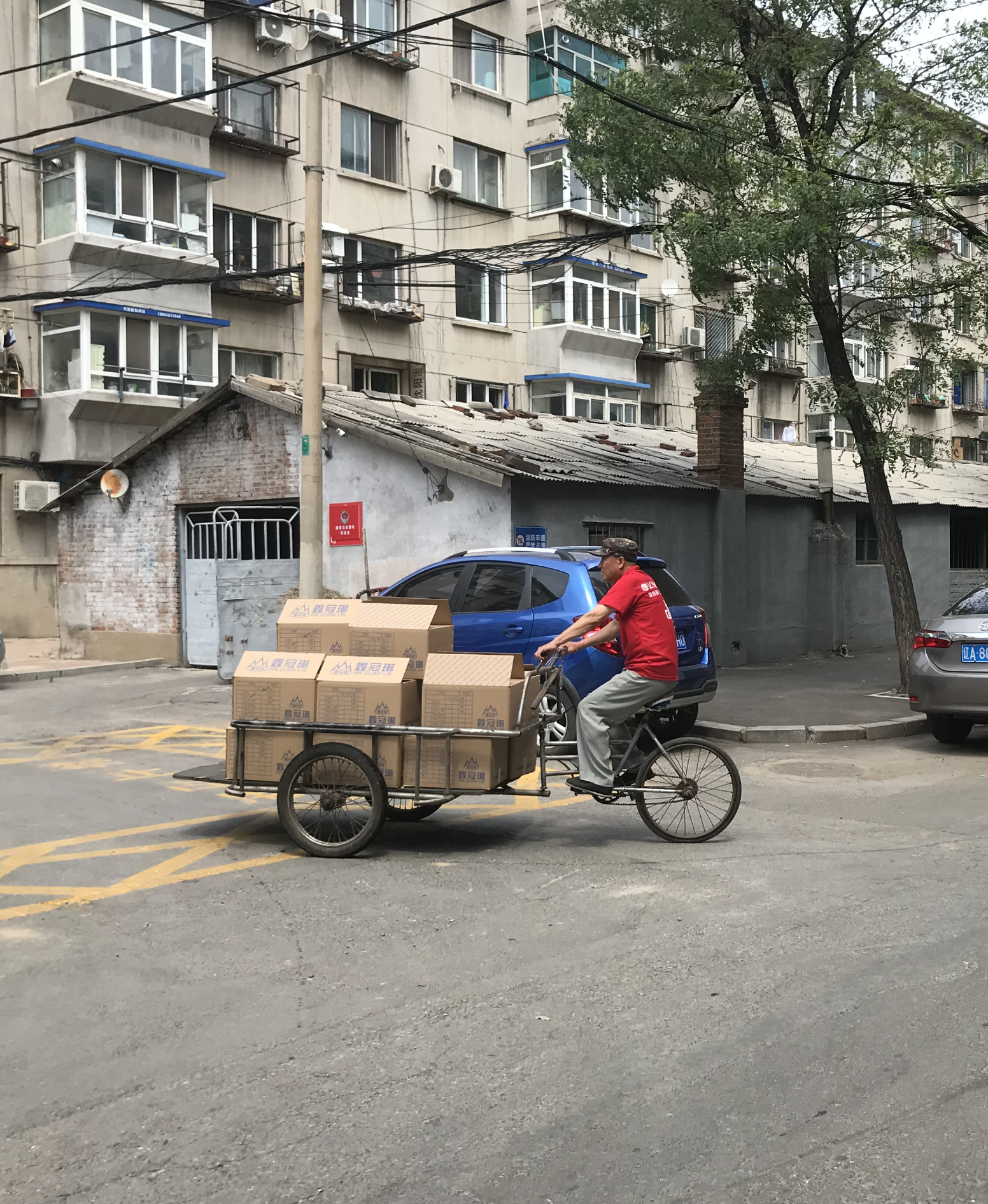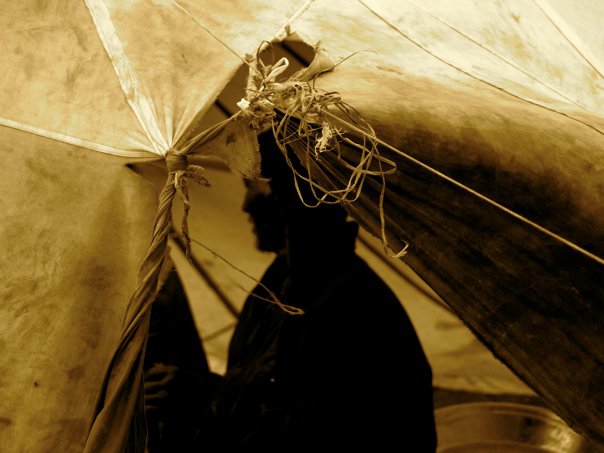
Delhi, Dharmshala, McLeod Ganj, Dharmkot. New friends and newer friends over masala chai. Deodar forest in rain. Mist rising. Monkeys on a cold tin roof, scorpions in the corridor, beetles inside clothes, slugs the size and shape of fallen leaves. Clean, spare, sharply elegant—Vipassana. Silence. Thank you for all the blessings, they came in handy.
“If you want to be my friend,” says His Holiness, “you must practise bodhichitta.” An ocean of reds, maroons, oranges, and yellows, monks and militarymen, Easterners and Westerners, genre-defying Dharma practitioners, an ocean of grace. The Maitreya statue, the 500-year-old Diskit monastery, and the full moon triangulate power against the night sky as we meditate on the rooftop.
It rains all over paragliding plans. In my head says Goenka: aniccha, aniccha, aniccha…
The roses are extravagant, heady. Apples and pears rot on trees. The dog barks just in proportion to its call of duty. The man spins the prayer wheel in his right hand while the phone in his left sings Hindi melodies decades old. The rhythms match. While I meditate in the dragon room, the day slips out, soft on its heels like a good houseguest.
The hills have grown up. Winding up by the Beas, shoulders have sharpened to cliffs, clefts have deepened to gorges, streams have swollen to cataracts. The mountains are thick with pines, firs, cedars. Wild flowers spill crazily down rock faces. Monasteries cling precariously to the rock like mad birds with powerful talons.
Thikse, Hemis, Stakna and two kilometres up the mountain to the Eagle’s Nest. The air is rare, the energy dizzying. The mountain seems to have shot out of the earth in one violent explosion. Kings and apricots and baby Rinpoches. On the other hand, little runaway monks crying by the side of the road.
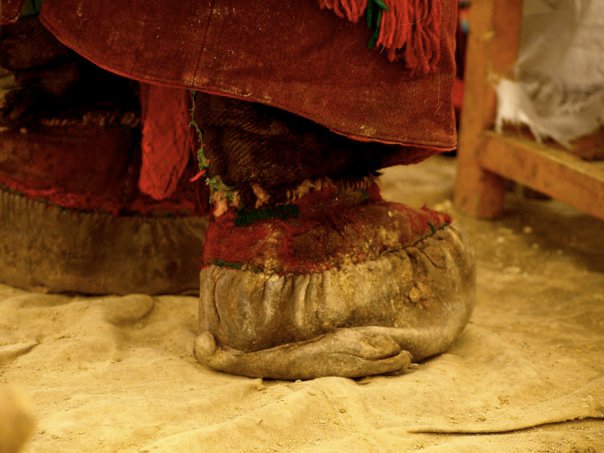
Past Chandertal where wild horses graze, we pick fragrant thyme. Goats have the same idea. Cadences of Tibetan, Nepali, Dzongkha, Hindi, Ladakhi, Lahauli intermingle. Lahaul, Land of the Dakinis. Night falls blue over the mountains. The stars are out. A warm humming kitchen in a remote nunnery is heaven.
Past the seven-foot snowshelves of Baralacha, past the skeletal remains of overturned trucks buried facedown in the ravines, past the barren red cliffs of Sarchu punctured by impossible caves, past the wind-sculpted dunes and sand fortresses of Pang, past the arid desertscape where overdressed yaks gather by a shallow pool, the Khardungla pass at 17,582 feet, awash in Tibetan chanting and moonlight.
Modest Choglamsar, vibrant Leh and so into Nubra. Snowbound Zanskar Range falls away; the Karakoram is a different beast—mammoth, desolate, relentless, in-your-face. Lovecraft would have had the sick vocabulary. The Bactrian camels of Hunder wear their silk route ancestry lightly, all bumps and snorts and fine dentistry displays.
Resplendent as the turquoises of the Ladakhi peraks, Lake Tsomoriri concentrates power at 15,075 feet. Watercolour clouds with many faces and many temperaments brush the surface. Our tents light up orange from the inside, warming the mind against the cold. We ride with the nomads of Korzok; my horse is a wild thing.
Cloudbursts, landslides, flashfloods, devastation. The nomads cry and beat their chests. A kid runs blindly with his fingers plugging his ears to shut out the noise. Against the wrath of nature, humans are reduced to infants, kicking and screaming, and then humbly resorting to art, heart, and artifice to survive. And what heart it is! We hoist vehicles out of sucking mud. We build a road by hand.
Frustrated at Rumtse where the road has turned into a churning raging river of mud that would take two lives, we turn back. Tsokar, Zingzingbar, Darcha, Keylong, all blur into each other. Three days later, there’s relief as the bleak landscape is left behind and sun-scattered green starts clinging in lustful expanses to the crags. Our prayers are with those who are suffering. Julle, Ladakh, ki ki so so lha gyal lo.
Kanya Kanchana is an itinerant student and teacher of yoga. Through her non-profit, she develops yoga programs for communities, creating positive social and personal change. She works with women, children, and those with special needs, often in remote or rural areas.
